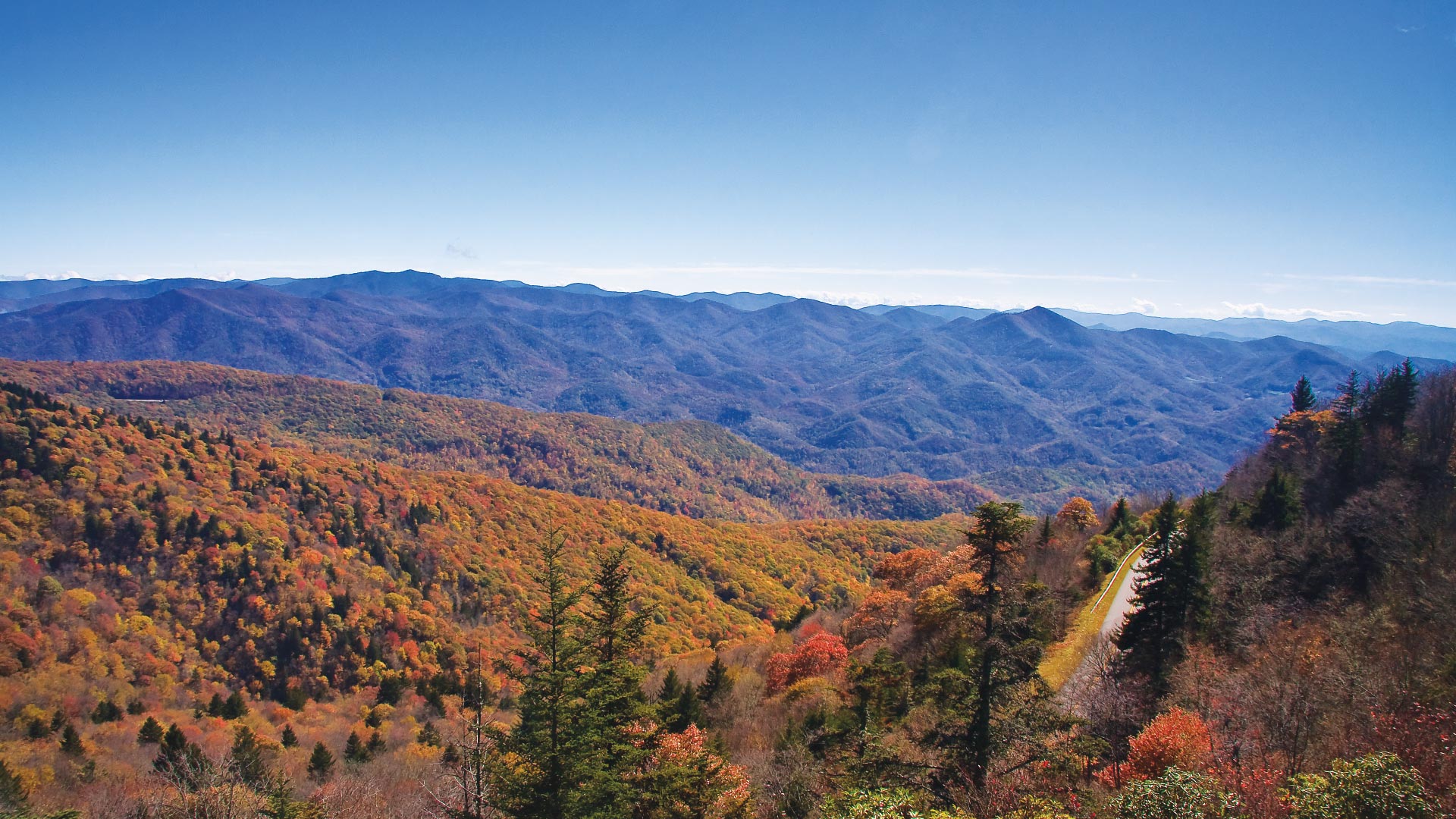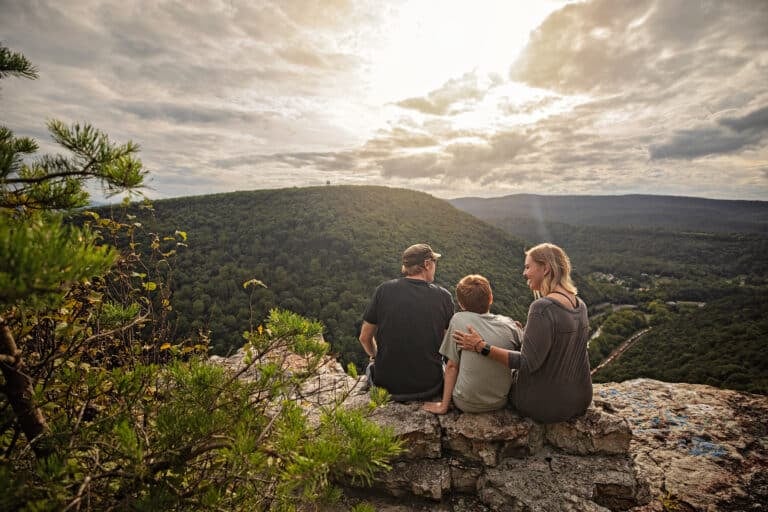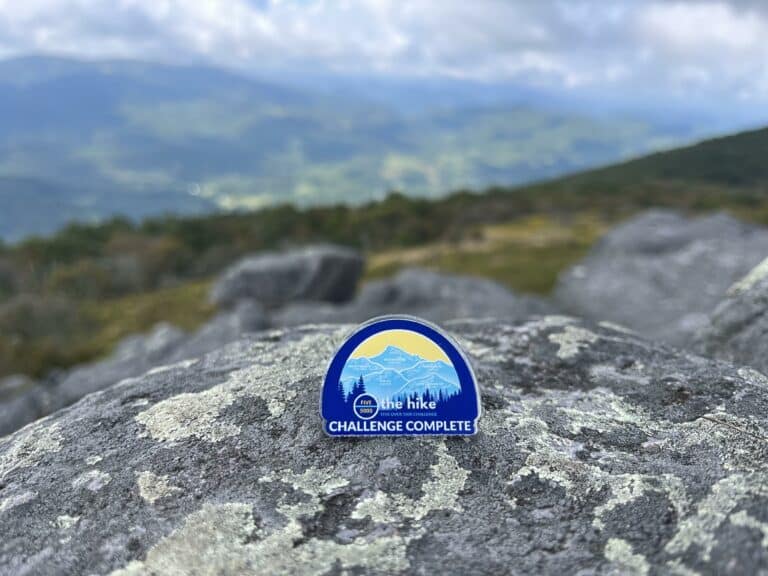By Jedd Ferris and Will Harlan
Ultrarunner smashes A.T. Speed Record by 4 Days
In late August, Belgian ultrarunner Karel Sabbe completed the 2,189-mile Appalachian Trail in 41 days, 7 hours, 39 minutes—smashing the previous speed record by over 4 days.
Sabbe, a 28-year-old dentist, kissed the wooden sign atop Mount Katahdin at the end of his northbound journey on the A.T. Sabbe began at Georgia’s Springer Mountain on July 18. He averaged around 53 miles per day—over two full marathons per day—for 41 consecutive days. The average thru-hiker takes five to six months to complete the trail and averages around 14 miles per day.
Sabbe announced his record on Instagram soon after summiting Katahdin: “In the year 60 B.C., Julius Caesar wrote: ‘Of all Gauls, the Belgians are the bravest.’ Over 2000 years later, there is still some truth in that sentence. We have set a new speed record on the epic Appalachian Trail! The Fastest Known Time is now 41 days, 7 hours, 39 minutes, which is over 4 days faster than the previous record, held by an incredibly strong and unsupported @thestring.bean.”
The previous record was held by Joe “Stringbean” McConaghey, who completed the entire trail in 45 days without any crew or support. McConaghey’s unsupported speed record still stands. Unlike McConaghey, Sabbe’s record-setting run relied on a support crew.
“Nobody had averaged more than 50 miles on the Appalachian Trail,” Sabbe continued. “More than proud, I feel privileged for having lived these incredible adventures. It was a blast from start to finish!”
Sabbe becomes the first person to hold speed records for both the Appalachian Trail and Pacific Crest Trail. In 2016, Sabbe completed the Pacific Crest Trail—which runs 2,650 miles from Canada to Mexico through the mountains of California, Oregon, and Washington—in 52 days, 8 hours, and 25 minutes.
600 Miles cycled in the annual Carolina Brotherhood Ride this summer.
For the seventh straight year, a group of first responders—firefighters, police officers, and emergency personnel—completed the six-day ride to honor fellow workers who lost their lives in the line of duty. The effort raised thousands of dollars for the surviving families of the fallen responders, and along the route cyclists stopped to visit loved ones of those lost.
Family of Eight from Kentucky Completes Appalachian Trail
Getting a large family out the door to do anything is chore, so imagine organizing a clan of eight for a 2,200-mile hike. That’s just what Ben and Kami Crawford, who reside in northern Kentucky, did this past spring and summer, when they embarked on a thru-hike of the Appalachian Trail with their six kids, who range in age from 2 to 17. The Crawfords left the trail’s southern terminus at Georgia’s Springer Mountain in March and reached the summit of Katahdin in Maine during the second week of August, along the way sharing responsibilities for cooking, setting up camp, and carrying the youngest family member, 2-year-old boy Rainier. The family documented the journey on YouTube with a quirky reality-TV-style video blog, which drew polarized commentary online about the hike’s merits and intentions.
Big Bucks For Trails
In August, longstanding outdoor retailer REI stroked a big check to help keep trails in tip-top shape, donating $643,000 to nonprofits that regularly maintain and restore the country’s 11 National Scenic Trails. The Appalachian Trail Conservancy, Georgia Appalachian Trail Club, and Potomac Appalachian Trail Club all received a portion of $48,100 earmarked for upkeep efforts on the Appalachian Trail.
“Sometimes I do it to relax my mind. Other times I do it just to pump myself up, and other times I’ll be writing and I’ll have a roadblock.”
—Comedian Michelle Wolf, when asked by Runner’s World why she runs. In the interview Wolf also revealed she often runs to and from work, about six miles a day, when filming her Netflix show, The Break with Michelle Wolf. Also, in May she completed her first ultramarathon, the Salt Flats Endurance Runs 50-miler in Utah.
Bear Eats Pizza at Tennessee Restaurant
At Howard’s Steakhouse in Gatlinburg, Tenn., a bear climbed a tree, jumped on a table on the restaurant’s patio, and started munching on pizza. After being scared away by an employee, the bear had to be trapped and relocated.
D.C. Artist Honors Fellow Cyclist with Bike Sculpture
Street artist Matthew Sampson never met Jeffrey Hammond Long, but when he read that the 36-year-old had died after being hit by a truck while riding his bike on the streets of Washington, D.C., in July, he felt compelled to honor the fellow cyclist. He did so by placing a “Ghost Bike” in the spot where Long was killed. Now seen in cities around the world, the white-painted used bikes have become symbols to memorialize cyclists involved in fatal accidents and raise awareness for cycling safety. Sampson told Citylab.com: “It’s made me angry because I should be safe biking around here, and I’m not.”
Giant coral reef discovered off South Carolina coast
Around 160 miles east of Charleston, South Carolina, a half mile below the ocean surface, scientists have discovered a dense forest of cold-water corals that runs for at least 85 miles. “It’s incredible that it stayed hidden off the U.S. East Coast for this long,” said expedition chief scientist Erik Cordes.
Mountain downgraded to a hill
Fan y Big, a mountain in Wales, was relegated to hill status last month, thanks to new satellite mapping technology that more accurately measured its drop between adjacent peaks. At 2,351 feet, it is still high enough for mountain status, but its drop of 93 feet between adjacent peaks is five feet short of what is required for mountain status.
If Georgia, North Carolina, South Carolina, Virginia, Alabama, and Tennessee were a country, they would be the 8th largest contributor to global warming in the world.
—Southern Environmental Law Center August 2018 report
Gonzo for the Green: Paddlers Saving Hemlocks Along Beloved River
A crew of experienced whitewater paddlers have teamed up with MountainTrue and other area nonprofits for a unique mission: save the hemlock tree from the scourge of the hemlock woolly adelgid along the famed Green River. Hemlocks shade some of the most beloved rivers in the Southeast, including the Green—home to the Green Race and some of the toughest whitewater in Appalachia. An invasive adelgid is decimating hemlock trees, so regional whitewater kayakers are navigating the Green River’s class IV waters to reach hemlocks and bury pellets of a hydrophobic pesticide around the roots of hemlock trees, which is currently the only reliable remedy.








